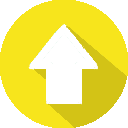Brittneywick (Talk | contribs) |
Brittneywick (Talk | contribs) |
||
| Line 85: | Line 85: | ||
<h1>COLLABORATIONS</h1><br> | <h1>COLLABORATIONS</h1><br> | ||
| − | < | + | <h2>University of California, San Diego</h2><br><br> |
| − | </ | + | |
| − | + | <p>The UC San Diego iGEM team provided us with a starting culture of Synechococcus elongatus PCC 7942, BG-11 media, pAM2991, and two flask covers for starting a culture of the cyanobacteria. In addition, they provided us with a plasmid map for pAM2991, transformation protocol for S. elongatus 7942, protocol for making BG-11 media, and information on Cyano Growth. They also provided us with advice on growing and maintaining S. elongatus 7942 over the duration of the project. <br><br> | |
| − | < | + | We provided UC San Diego with advice on how to fund their team by sharing information about funding methods and resources and our experiences with funding. </p> |
| + | <h2>iGEM Greece</h2><br><br> | ||
| − | + | <p>Completed a survey as a part of their collaborative risk assessment and large-scale human practices campaign.</p> | |
| − | + | ||
| − | + | ||
| − | + | ||
| − | + | ||
| − | + | ||
| − | <p> | + | |
| − | + | ||
| − | + | ||
| − | + | ||
| − | + | ||
| − | + | ||
| − | + | ||
| − | + | ||
| − | + | ||
| − | + | ||
| − | + | ||
| − | + | ||
| − | + | ||
| − | + | ||
| − | + | ||
| − | + | ||
| − | + | ||
| − | </p> | + | |
</div> | </div> | ||
| + | </html> | ||
| − | + | {{UCSC-Footer}} | |
| − | + | ||
| − | + | ||
| − | + | ||
| − | + | ||
| − | + | ||
| − | + | ||
| − | + | ||
| − | + | ||
| − | + | ||
| − | + | ||
| − | + | ||
| − | + | ||
| − | + | ||
| − | + | ||
| − | + | ||
| − | + | ||
| − | + | ||
| − | + | ||
| − | + | ||
Revision as of 05:19, 31 October 2017

COLLABORATIONS
University of California, San Diego
The UC San Diego iGEM team provided us with a starting culture of Synechococcus elongatus PCC 7942, BG-11 media, pAM2991, and two flask covers for starting a culture of the cyanobacteria. In addition, they provided us with a plasmid map for pAM2991, transformation protocol for S. elongatus 7942, protocol for making BG-11 media, and information on Cyano Growth. They also provided us with advice on growing and maintaining S. elongatus 7942 over the duration of the project.
We provided UC San Diego with advice on how to fund their team by sharing information about funding methods and resources and our experiences with funding.
iGEM Greece
Completed a survey as a part of their collaborative risk assessment and large-scale human practices campaign.


